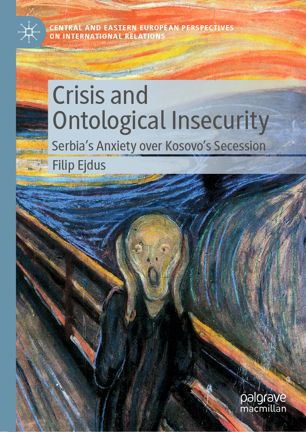

Most ebook files are in PDF format, so you can easily read them using various software such as Foxit Reader or directly on the Google Chrome browser.
Some ebook files are released by publishers in other formats such as .awz, .mobi, .epub, .fb2, etc. You may need to install specific software to read these formats on mobile/PC, such as Calibre.
Please read the tutorial at this link. https://ebooknice.com/page/post?id=faq
We offer FREE conversion to the popular formats you request; however, this may take some time. Therefore, right after payment, please email us, and we will try to provide the service as quickly as possible.
For some exceptional file formats or broken links (if any), please refrain from opening any disputes. Instead, email us first, and we will try to assist within a maximum of 6 hours.
EbookNice Team

Status:
Available5.0
7 reviewsThis book develops a novel way of thinking about crises in world politics. By building on ontological security theory, this work conceptualises critical situations as radical disjunctions that challenge the ability of collective agents to ‘go on’. These ontological crises bring into the realm of discursive consciousness four fundamental questions related to existence, finitude, relations and autobiography. In times of crisis, collective agents such as states are particularly attached to their ontic spaces, or spatial extensions of the self that cause collective identities to appear more firm and continuous. These theoretical arguments are illustrated in a case study looking at Serbia’s anxiety over the secession of Kosovo. The author argues that Serbia’s seemingly irrational and self-harming policy vis-à-vis Kosovo can be understood as a form of ontological self-help. It is a rational pursuit of biographical continuity and a healthy sense of self in the face of an ontological crisis triggered by the secession of a province that has been constructed as the ontic space of the Serbian nation since the late 19th century.